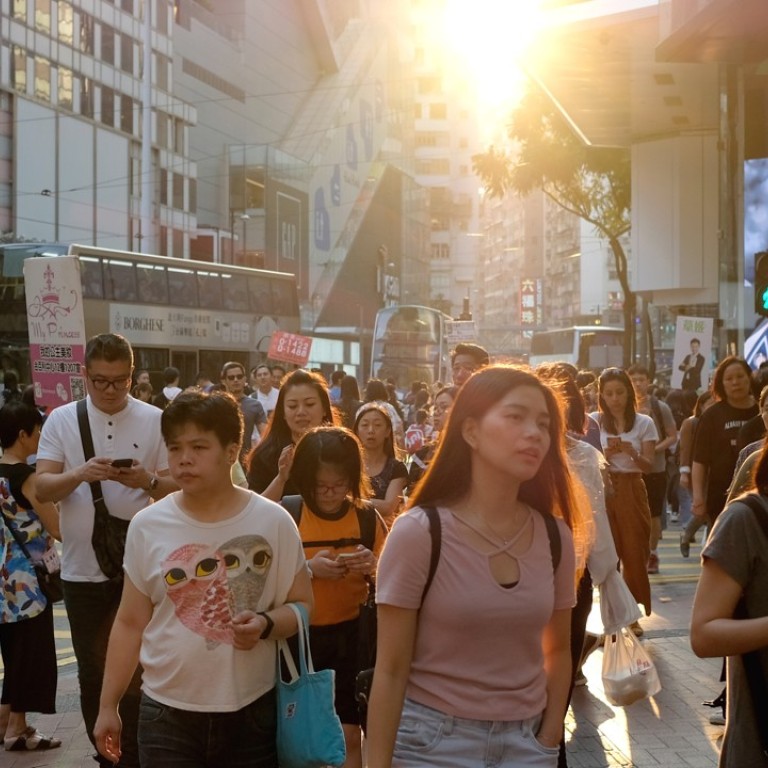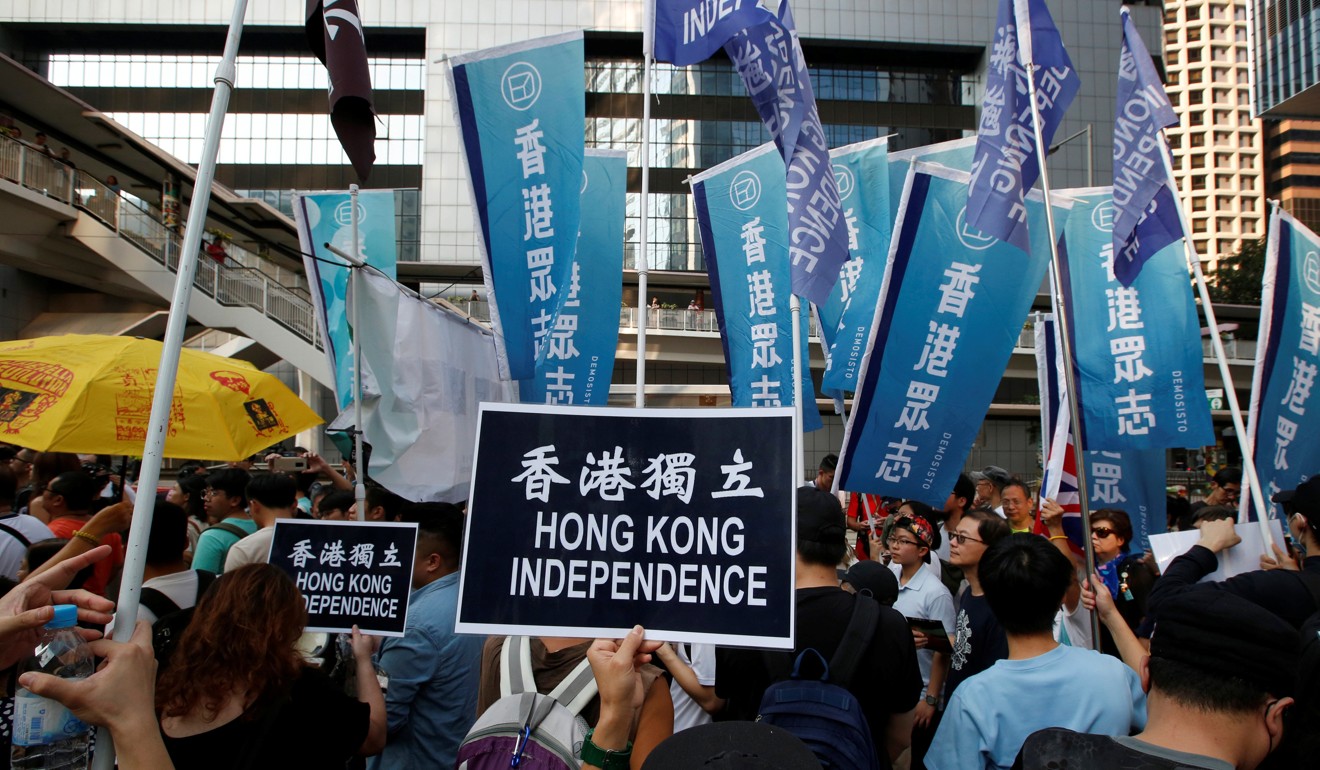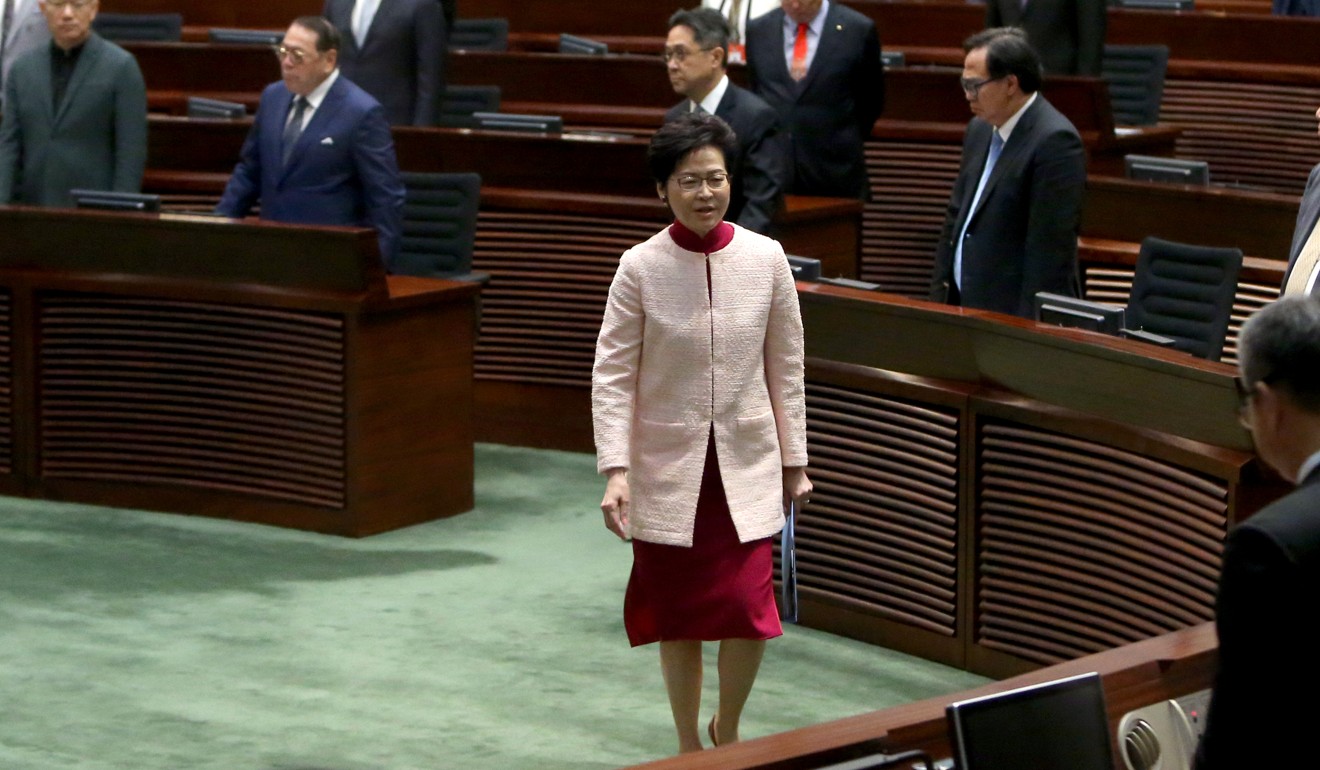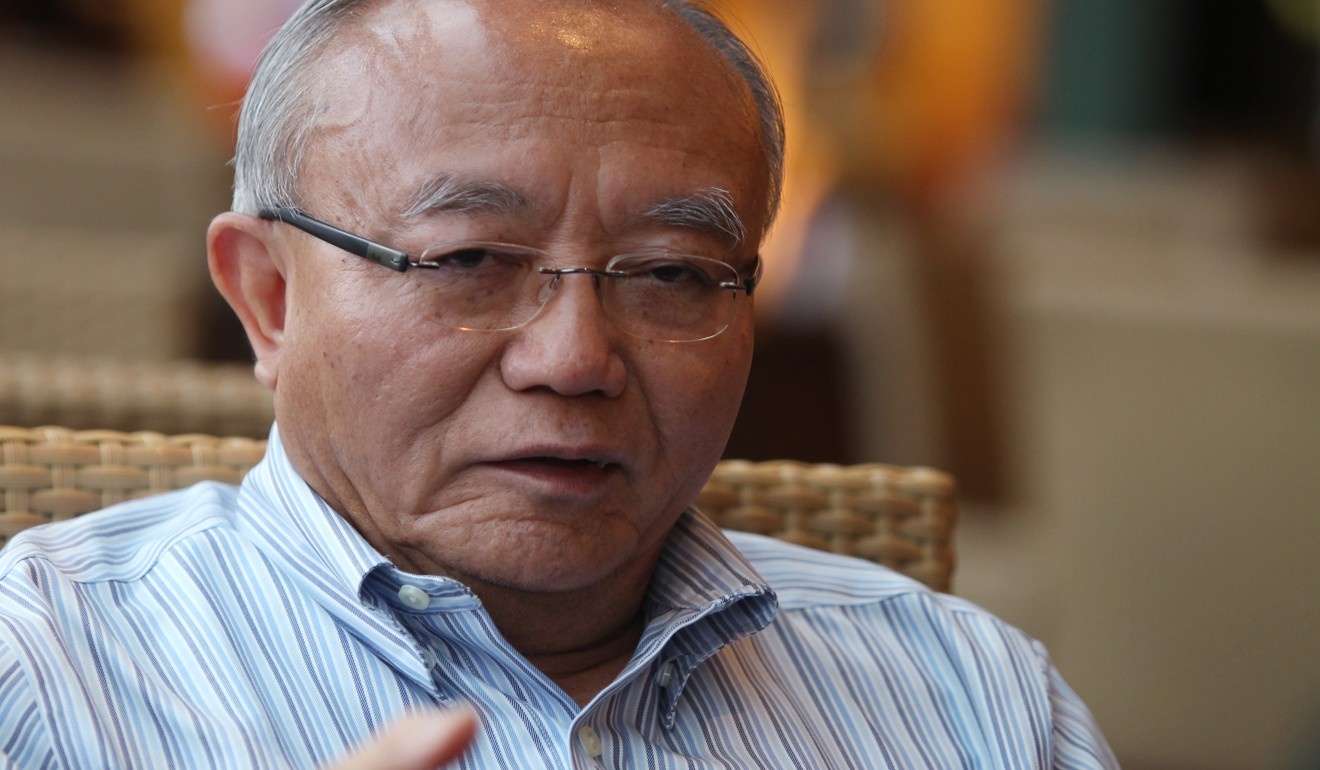
Hong Kong leader Carrie Lam’s 2018 policy address brings good news for working mothers and house-hunters
But chief executive’s 40-minute speech does not go into detail on sensitive political issues such as calls for city’s independence or national security laws
Hong Kong’s workers and house-hunters stood to benefit most from initiatives announced by the city’s leader on Wednesday.
In a 40-minute speech to the Legislative Council, Chief Executive Carrie Lam Cheng Yuet-ngor unveiled her second policy address, including her much anticipated plan to free up land for housing, scrapping a controversial “offsetting” arrangement under the government-mandated pension scheme and longer maternity leave.
Lam pledged to strengthen primary health care services and boost cash for education and innovation.
But she did not go into detail on sensitive political topics such as Hong Kong independence or passing laws against sedition. She declared once again that the government would “not tolerate any acts that advocate Hong Kong’s independence and threaten the country’s sovereignty, security and development interests”.
She noted it was the government’s “constitutional responsibility” to enact Article 23 of the Basic Law – which necessitates anti-sedition laws – but once again did not commit to a timetable.

Measures to ease Hong Kong’s housing crunch were the major focus.
Lam said the government would speed up studies into using brownfield sites – damaged farmland used as scrapyards and open storage – for housing.
A new project, dubbed Lantau Tomorrow Vision, would develop an area of about 1,700 hectares, including an artificial island to the east of Lantau Island, and reclaimed land off other coastal areas such as Tuen Mun and Lung Kwu Tan.
The project would provide 260,000 to 400,000 flats, of which 70 per cent would be public housing, Lam said. The new land, she added, could accommodate as many as 1.1 million people and create 340,000 jobs in the next 20 to 30 years.
She announced the Housing Authority would look at ways to relax resale requirements to let owners of its subsidised sale flats, with land premium unpaid, sublet their flats to families in need. The government would also provide incentives to owners of factory buildings to convert them into transitional housing for the needy.

On labour rights, Lam proposed giving working women four more weeks’ maternity leave, raising the current statutory requirement from 10 weeks to 14, to catch up with International Labour Organisation standards. The government would reimburse employers for the cost of the extra leave, capped at HK$36,822 per employee, meaning that for employees with a monthly income of HK$50,000 or less, the additional leave pay would be covered.
As for the Mandatory Provident Fund (MPF) scheme, Lam proposed scrapping the controversial offsetting mechanism that lets employers pay long-service and severance payments from their own contributions. She said the government would soften the blow by offering subsidies totalling HK$29.3 billion to employers over 25 years, instead of the previously proposed HK$17.2 billion (US$2.2 billion) over 12 years.
There is no perfect solution in this world … yet divergence of views should not become an obstacle to the government’s leading Hong Kong to make progress and, more importantly, it should never bring Hong Kong to a standstill
She said the government was determined to have the proposal endorsed by Legco before 2022, when her term ends. The offsetting mechanism would be scrapped two years after the bill was passed, she added.
Lam also promised to review tolls for cars at the city’s three cross-harbour tunnels in the hope of redistributing their uneven traffic.
A free cervical cancer vaccination scheme would be introduced in 2019/20 for schoolgirls of particular age groups.
Lam used the address to stress she would not allow “procrastination” and her government would lead “Hong Kong to make progress”, instead of trying to get an “absolute consensus in the community”.
“There is no perfect solution in this world … yet divergence of views should not become an obstacle to the government’s leading Hong Kong to make progress and, more importantly, it should never bring Hong Kong to a standstill,” she said.
She also promised more collaboration with various political parties, saying: “I would not harbour an unrealistic wish that all our political parties or members of this council share the same political stance. Yet, so long as the principle of ‘one country’ is not compromised, there should be plenty of room for collaboration.”
She also promised to act “swiftly and boldly” on matters of public interest. She surprised observers with a policy U-turn, announcing a total ban on electronic cigarettes, citing the need to protect public health. The government had aimed to regulate such products the same way as conventional tobacco products.
But Professor Lau Siu-kai, former head of the government think tank and now a vice-chairman of the Chinese Association of Hong Kong and Macau Studies in Beijing, said there were big global themes missing from Lam’s speech.
“Lam has not alerted the Hong Kong people enough to the impeding crisis facing the city in the years ahead,” Lau said.

“The crisis arises from the escalating US-China confrontation and the increasing conflict between the West and the Sino-Russian entente. This crisis could have a serious impact on the relationship between Hong Kong and the West, Hong Kong’s relations with Beijing and Hong Kong’s economic future, the way Hong Kong is governed, and Hong Kong’s political stability.”
Starry Lee Wai-king, chairwoman of the pro-Beijing Democratic Alliance for the Betterment and Progress of Hong Kong, praised the policy address.
“She has pictured a vision for the city’s future ... I appreciate [Lam] giving priority to the land issue,” she said.
On Lam’s failure to put forward a concrete timetable for a national security law, as some pro-Beijingers have urged, Lee said that was understandable as the public expected her to address the pressing land and housing issues.
Claudia Mo Man-ching, who chairs the meetings of Legco’s pan-democratic bloc, gave Lam’s speech a mark of zero.
Questioning Lam’s efforts to integrate the city into the central government’s “Greater Bay Area” plan, she worried that Hong Kong was being “melted into mainland China”, its uniqueness lost.

